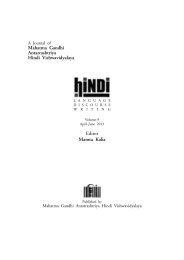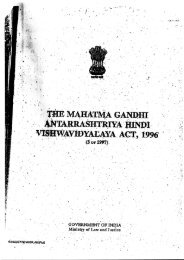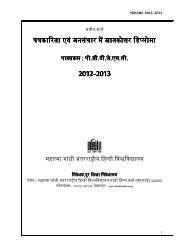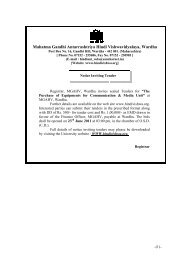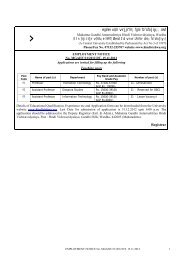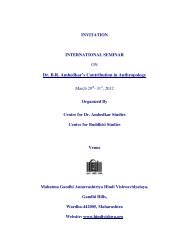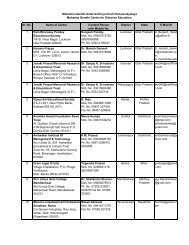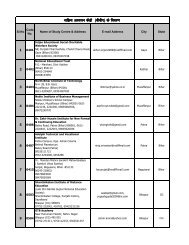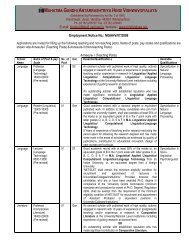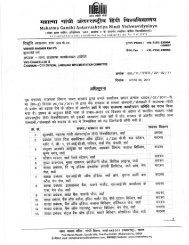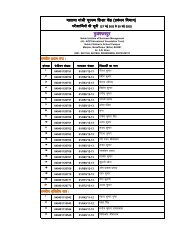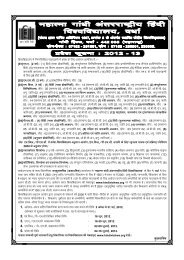Mamta Kalia
Mamta Kalia
Mamta Kalia
Create successful ePaper yourself
Turn your PDF publications into a flip-book with our unique Google optimized e-Paper software.
Thus his post-modernism gives up<br />
language’s representational function and<br />
argues that language constitutes, rather<br />
than represents/ reflects the world and<br />
knowledge is, therefore, always distorted<br />
by language that consists of a set of<br />
‘signifiers’ that do not give access to<br />
reality. To him, western philosophy<br />
largely rests on binary opposites like<br />
truth-falsity, unity-diversity, manwoman<br />
etc whereby the former is<br />
considered superior to the latter. But<br />
at present symbols have become more<br />
important than the message they carry,<br />
hence binary distinctions between science<br />
and ideology, reason and rhetoric,<br />
essence and sembalance become blurred<br />
due to apparent reality created by mass<br />
media.<br />
Thus from above, it is crystal clear<br />
that there are several streams/routes<br />
of post-modernism. However, its<br />
following tenets may be considered<br />
common to most of these streams:<br />
a) language constitutes, rather than<br />
represents, the reality of the life<br />
world;<br />
b) the autonomous subject of<br />
modernity is replaced by a postmodern<br />
agent whose identity is<br />
largely other- determined and<br />
always in process;<br />
c) there are no final, universal,<br />
homogeneous, uniform and<br />
permanent truths;<br />
d) there are several meanings (due<br />
to difference in culture),<br />
80 :: April-June 2010<br />
independent of author’s intention,<br />
depending on the reader’s<br />
interpretations of text through<br />
deconstruction;<br />
e) there is no objective, scientific<br />
grand/meta narrative, rather<br />
binary opposition between science<br />
and narrative is no more present<br />
in social life world; western<br />
science is Eurocentric and ignores<br />
indigenous knowledge systems of<br />
developing countries;<br />
f) Mode of production has given<br />
way to the mode of cultural<br />
reproduction (i.e. signs, images,<br />
media), hence economy’s central<br />
place in modernity is challenged<br />
and ‘decentering’ is required;<br />
g) Knowledge counts only within<br />
a given power structure;<br />
h) It gives importance to local<br />
specificity, difference, diversity,<br />
plurality and multiculturalism. It<br />
questions the state politics of<br />
modernity.<br />
But on a critical examination of post–<br />
modernism, I find the following demerits<br />
in post-modernism:<br />
First, though post-modernism rightly<br />
questions economic determinism<br />
postulated by Marxism’s mainstream, it,<br />
too, suffers from cultural determinism<br />
as it ultimately gives culture the central<br />
place in society and thus its conception<br />
of multipolarity is lost.<br />
Second, due to its rejection of<br />
scientific knowledge and universal grand



